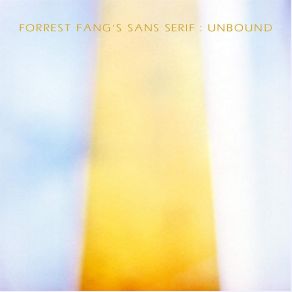Sans Serif: Unbound
Download links and information about Sans Serif: Unbound by Forrest Fang. This album was released in 2011 and it belongs to New Age, Electronica, Dancefloor, Dance Pop genres. It contains 5 tracks with total duration of 57:11 minutes.

|
|
|---|---|
| Artist: | Forrest Fang |
| Release date: | 2011 |
| Genre: | New Age, Electronica, Dancefloor, Dance Pop |
| Tracks: | 5 |
| Duration: | 57:11 |
| Buy it NOW at: | |
| Buy on iTunes $7.99 | |
Tracks
[Edit]| No. | Title | Length |
|---|---|---|
| 1. | Henon's Aurora | 13:18 |
| 2. | Chant of Urm | 8:50 |
| 3. | Lost Oracle | 12:07 |
| 4. | A Silver Season | 12:26 |
| 5. | Tone In Alium | 10:30 |
Details
[Edit]Forrest Fang's third album on Projekt continues in the elegantly meditative vein of his previous two efforts: his calm, precise way around predominantly electronic arrangements suggest something that never quite was, but still should be. The sense of patience and space in a busy world is a far from new one in both Fang's work and in the general field of exploratory electronic textures, but Unbound is not meant to be a radical break or step forward so much as a restating of the possibilities. "Henon's Aurora" begins the album in an expected enough way, with an interweaving of serene, slow, high-pitched parts that feel like a low velocity flight through the highest of skies. It sets the tone that the album mostly maintains throughout its five individual parts; for the most part, the parts don't blend into each other, but they are all of a piece, carefully constructed and designed to take a listener to a spot that doesn't need leaving. The switch from "Lost Oracle" to "A Silver Season" is the smoothest, though, and serves as a way to make the former's steadier flow act as an introduction to the latter's most upfront, almost exultant feeling. It's not that Fang's work suddenly turns into Sousa fanfares, but a brighter sensibility, more layers to the sound throughout, and a sense of light bursting through the clouds is what "A Silver Season" evokes, a next step upward to somewhere. Throughout there's as much a sense of uneasy preternatural chill as there is of sheer reflective stasis — "Chant of Urm" is a strong example; a blend of darker- and lighter-sounding parts in careful balance throughout while the occasional soft swell of further tones adds a sense of steady progression. "Tone in Alium," the album closer, plays up these differences even more, with a rhythmic howling-wind sound recurring against softer synths.